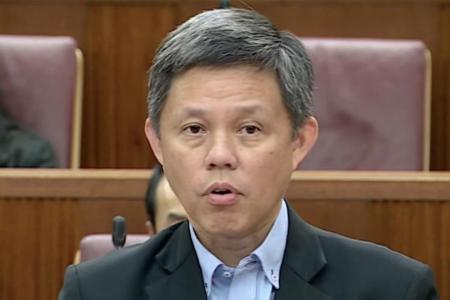Call for empathy in handling bullies as netizens demand for stricter actions
The recent bullying incidents involving a Qihua Primary School pupil and a Bukit View Secondary School student, both captured on video and shared widely online, have ignited debate in Singapore's Parliament.
The gravity of the situation was thrown into sharp relief in Parliament on Oct 14, with Education Minister Chan Chun Sing facing a barrage of questions from eight MPs concerned about the seemingly rampant nature of bullying in schools.
Responding to the concerns, Mr Chan acknowledged the growing influence of the online world on young people, cautioning that reported cases of cyberbullying are expected to increase as awareness grows.
He reassured Parliament that the Ministry of Education (MOE) is actively working to combat this issue, highlighting efforts to sensitise students on what constitutes bullying and encouraging them to report such incidents without fear.
"Students are today much more confident and willing and able to come forward and tell us what they have experienced," stated Mr Chan, emphasising the MOE's commitment to creating a safe environment for students.
But a recent study by TNP casts a shadow of doubt on the effectiveness of current measures, suggesting that reported cases may not accurately reflect the true extent of the problem.
While Mr Chan cited official figures indicating an average of two bullying incidents per 1,000 primary school students and six per 1,000 secondary school students annually, our survey findings paint a more concerning picture.
Over 34 per cent of the 240 respondents, all aged 18 and above, revealed they experienced bullying during their school years.
Shockingly, over a third of them admitted they had chosen not to report the incidents to any authority figure.
The findings further exposed the complex web of fear and shame that prevents victims from coming forward. Many respondents expressed a belief that reporting the incidents would be futile, fearing retribution from their tormentors or, worse, disbelief and indifference from those meant to protect them.
This fear of repercussions, coupled with the immense social pressure to conform and avoid being ostracised, creates a breeding ground for silence and allows bullies to act with impunity.
However, those may not be the only factors at play.
"It's not really about shame and fear, to be honest. I was also once a bullied victim before and I really felt helpless then,” commented a TNP reader on Facebook. “Teachers wouldn't step in to help at all, nobody will believe you until they see that that's the problem."
The TNP survey also shed light on the perpetrators’ perspective.
While 40 respondents admitted to bullying others during their school years, only a small fraction faced any repercussions for their actions.
This disparity in reported figures and actual experiences could be attributed to a number of factors, as highlighted by Mr Chan. He acknowledged the possibility of both under-reporting and "over-reporting of a different kind".
"This issue is a complex one," said the Education Minister, explaining that differing interpretations of what constitutes bullying might contribute to this discrepancy.
He acknowledged that while some students might experience bullying and choose to manage it themselves without escalating the issue to adults, others might perceive uncomfortable situations as bullying and report them, even if they don't strictly fall under the official definition.
Addressing the recent trend of sharing bullying videos online, Mr Chan cautioned against the unintended consequences of such exposure.
"We want to steer clear of actions that might hinder or deny a perpetrator’s chance for rehabilitation, such as counterproductive social media behaviours,” he stated, emphasising that public shaming could be detrimental to the rehabilitation process.
“As a society, we must be careful not to normalise such behaviours unintentionally,” he added, urging a more responsible approach to addressing bullying in the digital age.
Mr Chan advocated for a more empathetic and understanding approach to the issue.
"It’s important for us not to oversimplify these issues and very often, the rehabilitation for both the victim and the perpetrators are not a short journey," he said, emphasising the need for a collaborative effort.
“We need to put in the necessary efforts with the parents and community partners in order to do this well.”
Online sentiment, however, seems to lean in a different direction.
"What is this world coming to? The bullies should be punished severely, I think all this counselling and so on are not working at all," read one comment on a Facebook post by TNP.
Another commenter added: "This is getting too much and it's about time more serious attention is paid. These teens and bullies are getting a lot more brazen with no care for the law or repercussions."
Get The New Paper on your phone with the free TNP app. Download from the Apple App Store or Google Play Store now



